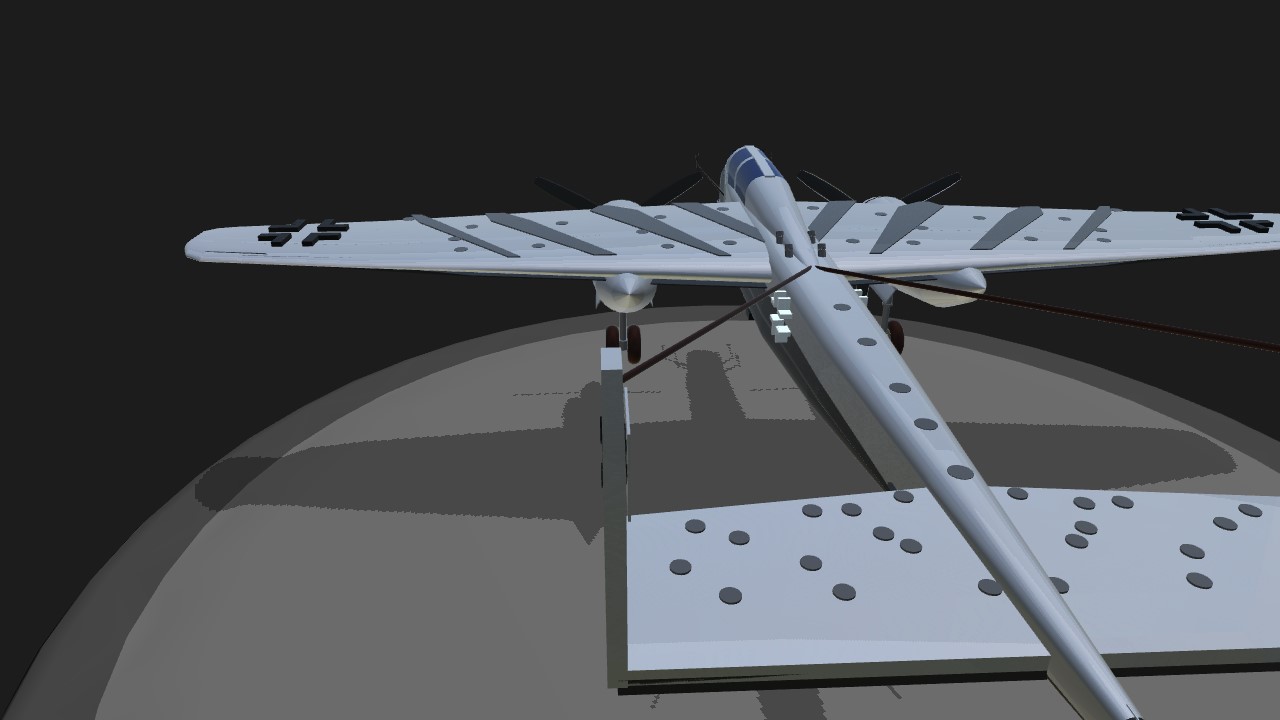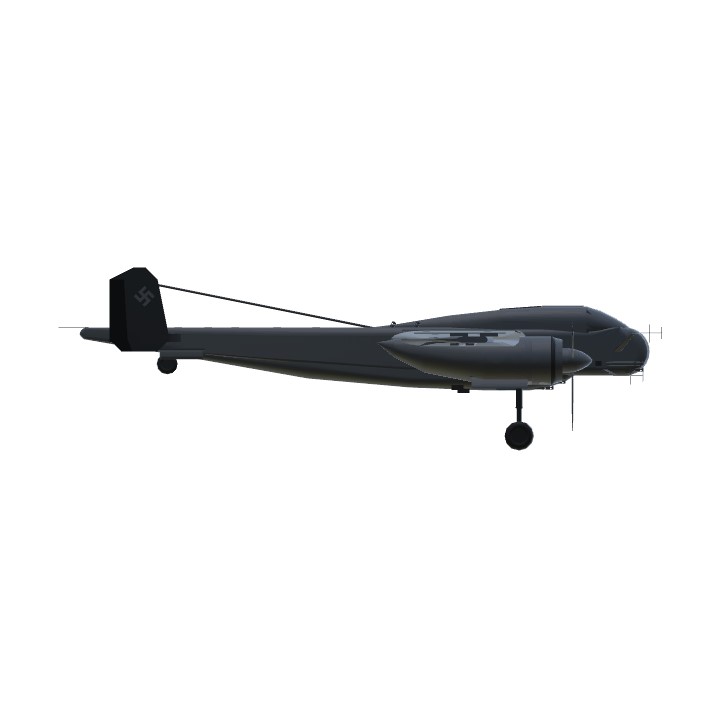Notes:
-Finally, a good cockpit view
-Fun to fly
-Credit to Seeras for the upwards facing guns
Controls:
-Action group 1: Toggle main armament
-Action group 2: Toggle Schräge Musik
History: Designed as a successor/replacement for the Heinkel He-219 Uhu, the Dornier Do-517 shared a few features with the other design. First, the belly cannons were housed in a pod-like structure that ran the length of the aircraft as well as the general shape of the nose area. Dornier kept the smaller wheel at the back and bigger wheels in the engine nacelles instead of Heinkel's tricycle landing gear setup. The Dornier aircraft also sported additional firepower. It had a total of eight 20mm cannons in the nose and four Schräge Musik cannons in the middle of the fuselage (pointing up to shoot bombers in their bellies). The Do-517 J-1 also had a crew of two, but the planned J-2 and J-3 aircraft would have housed a crew of three (a navigator in the nose as well as the J-3 having two jet engines). The Do-517 did have a slower speed than the He-219, but this was because of the added weight of the weapons, so the Luftwaffe overlooked this flaw. The first flight of the (only) Do-517 J-1 was performed on February 6, 1945, with the first combat mission being flown three days later. The aircraft shot down a total of six British Lancaster bombers as well as two Spitfires, which were escorting the bombers. The crew, both of whom are still unknown, were awarded Knight's Crosses mit Eichenlaub when they returned to base (the records only state the medals, not the names of the crew). The same crew took to the skies two nights later and again scored a few bomber kills, but this time a lone Mosquito got on their tail. The right engine was damaged and the crew were forced to land in Allied territory, with the plane being captured and the crew disappearing. Allied test flights proved that the plane had a lot of potential, but since only one was ever created, it was never able to use it. The Do-517 J-1 is still on display in Germany.
Specifications
General Characteristics
- Successors 2 airplane(s)
- Created On iOS
- Wingspan 49.2ft (15.0m)
- Length 41.2ft (12.6m)
- Height 12.4ft (3.8m)
- Empty Weight 12,155lbs (5,513kg)
- Loaded Weight 16,505lbs (7,486kg)
Performance
- Power/Weight Ratio 0.204
- Horse Power/Weight Ratio 0.242
- Wing Loading 38.5lbs/ft2 (187.9kg/m2)
- Wing Area 428.8ft2 (39.8m2)
- Drag Points 11696
Parts
- Number of Parts 345
- Control Surfaces 10
- Performance Cost 1,055







Cool. Awesome Plane. @DestinyAviation
It is indeed fictional, @Strikefighter04.
Awesome! Is this real? Because the tag says fictional.
Noice